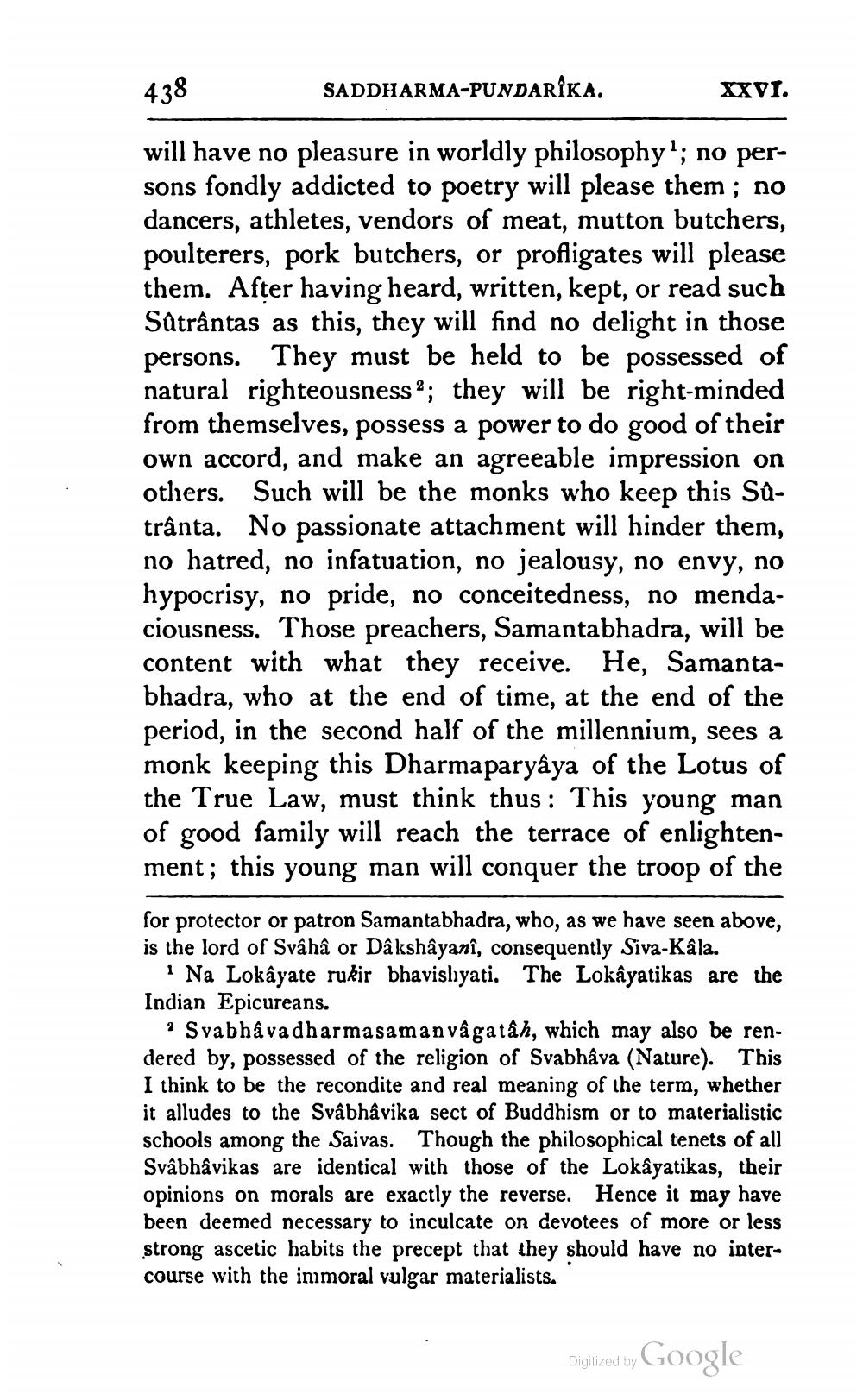________________
438
SADDHARMA-PUNDARÍKA.
XXVI.
will have no pleasure in worldly philosophy'; no persons fondly addicted to poetry will please them ; no dancers, athletes, vendors of meat, mutton butchers, poulterers, pork butchers, or profligates will please them. After having heard, written, kept, or read such Satrântas as this, they will find no delight in those persons. They must be held to be possessed of natural righteousness 2; they will be right-minded from themselves, possess a power to do good of their own accord, and make an agreeable impression on others. Such will be the monks who keep this Sutrânta. No passionate attachment will hinder them, no hatred, no infatuation, no jealousy, no envy, no hypocrisy, no pride, no conceitedness, no mendaciousness. Those preachers, Samantabhadra, will be content with what they receive. He, Samantabhadra, who at the end of time, at the end of the period, in the second half of the millennium, sees a monk keeping this Dharmaparyâya of the Lotus of the True Law, must think thus : This young man of good family will reach the terrace of enlightenment; this young man will conquer the troop of the
for protector or patron Samantabhadra, who, as we have seen above, is the lord of Svâhâ or Dâkshâyanî, consequently Siva-Kâla.
· Na Lokayate rukir bhavisliyati. The Lokâyatikas are the Indian Epicureans.
i Svabhavadharmasaman vågatåh, which may also be rendered by, possessed of the religion of Svabhâva (Nature). This I think to be the recondite and real meaning of the term, whether it alludes to the Svâbhâvika sect of Buddhism or to materialistic schools among the Saivas. Though the philosophical tenets of all Svâbhâvikas are identical with those of the Lokâyatikas, their opinions on morals are exactly the reverse. Hence it may have been deemed necessary to inculcate on devotees of more or less strong ascetic habits the precept that they should have no intercourse with the immoral vulgar materialists.
Digitized by Google




